Just like the importance of understanding your own health, you should research the health and potential illnesses of guinea pigs. Although guinea pigs, like all animals, can suffer a variety of health conditions, scurvy, or vitamin C deficiency is one of their most common afflictions.
In addition to understanding the basics of scurvy, this article will help address symptoms, diagnosis, treatment, and prevention. Thankfully, vitamin C deficiency is typically easy to treat and is even easier to prevent, especially in modern times.

What is Scurvy?
Scurvy, or vitamin C deficiency, is a dangerous and painful condition that develops due to a lack of dietary vitamin C. Vitamin C is crucial for proper bone and tissue formation, cell function, and blood clotting, and without it, the body can become incredibly damaged. This condition develops after the body doesn’t get enough vitamin C for a prolonged period.
Scurvy in humans, which is very similar to scurvy in guinea pigs, appears in several accounts in ancient writings. Some of the earliest evidence of suspected scurvy include bone changes in the skeleton of a child in Egypt dating back to 3800-3600 BCE and skeletal remains of a child in England around 2200-1970 BCE.
The first truly clear descriptions of the disease began during the medieval crusades and continued through the age of sailing. The curative powers of citrus fruits were often forgotten and rediscovered through the centuries.
Symptoms of Vitamin C Deficiency
Because vitamin C is such a crucial part of normal, healthy function, scurvy can have catastrophic effects on the body. Symptoms may begin as simply as atypical behavior or some minor sense that something is “off.” It’s important to take note of anything which may indicate your guinea pig is sickly or unwell.
Some of the milder symptoms of scurvy can include:
● A rough coat
● Small wounds which bleed more than normal or fail to heal as quickly as they normally would
● Spots of blood just under the skin
● Weakness or lack of energy
● Diarrhea
Some of the more dangerous symptoms associated with vitamin C deficiency may include:
● Loss of appetite resulting in weight loss
● Pain and difficulty walking
● Internal bleeding in the muscles, intestines, skull membranes, or brain
● Sudden death
How is scurvy diagnosed?
If you suspect your guinea pig is displaying signs or symptoms of scurvy, they should see a veterinarian to be officially diagnosed. Typically, the veterinarian will ask questions to establish your cavy’s medical history, regular diet, and normal behavior.
Your guinea pig’s veterinarian will also take note of any concerning symptoms and may perform some tests. One of the most common would be a blood test, which will reveal your guinea pig’s vitamin C levels.

Treatment and Management
If your cavy is suffering from vitamin C deficiency, they will need immediate treatment to encourage full and quick recovery. The most crucial part of their treatment will be to immediately increase the vitamin C levels in their diet. This may be done through specific foods, water-soluble vitamin concentrate, or a solid supplement, as recommended by the veterinarian.
In more advanced cases, your pig’s veterinarian may opt to provide some type of pain relief medication to manage your pet’s discomfort. Additionally, serious cases of scurvy can damage many parts of the body, and your guinea pig may need additional treatments or procedures to correct these issues.
Prevention
Like most health concerns, it is better and easier to prevent the issue from ever occurring than to wait and treat. Thankfully, it is easy to prevent your guinea pig from developing scurvy by ensuring they get enough vitamin C in their diet.
Fruits and vegetables which are guinea pig-friendly and high in vitamin C include:
● Carrots
● Spinach
● Bell peppers
● Strawberries
● Kale
● Tomatoes
● Broccoli
● Asparagus
● Kiwi
As always, remember to feed these fruits and vegetables in appropriate portion sizes and not too frequently. If you're needing an easy way to get vitamin C into your guinea pig's diet, check out our Rosehip Supplements by clicking here!


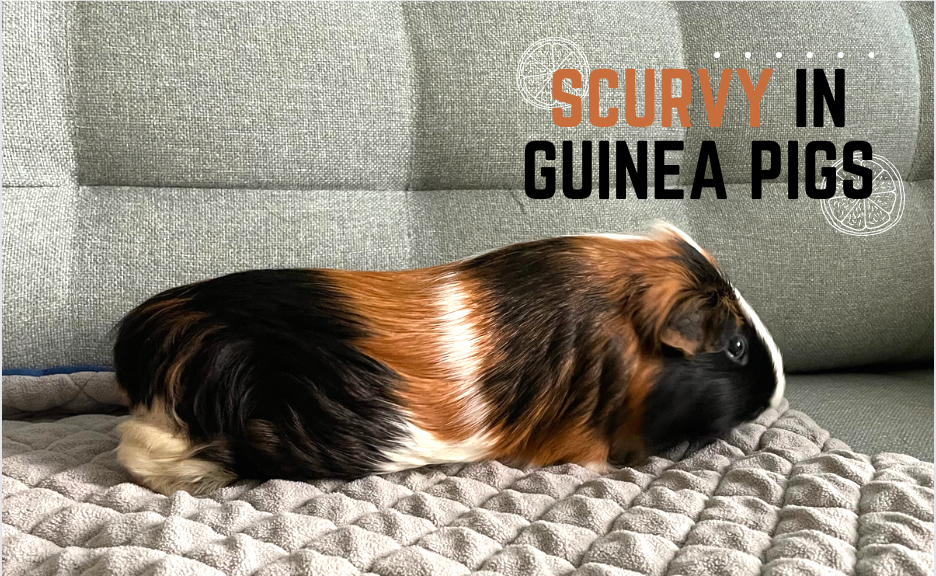






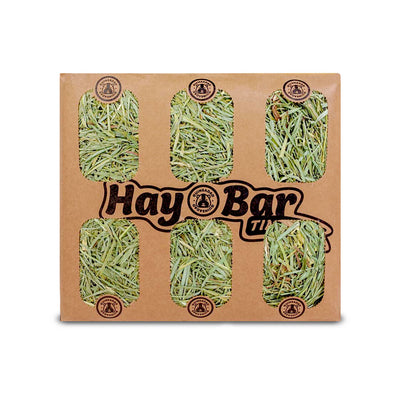
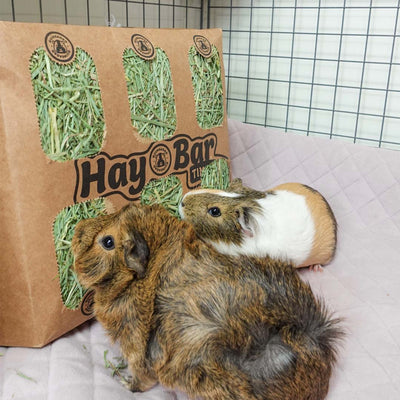
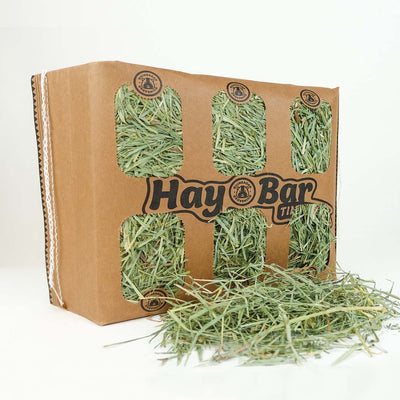
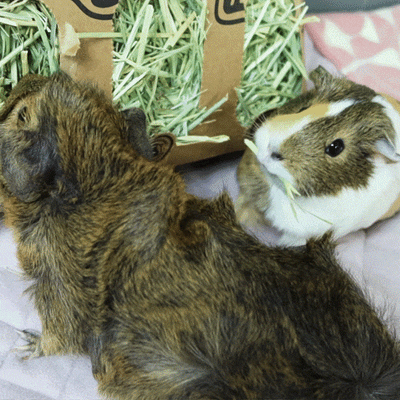
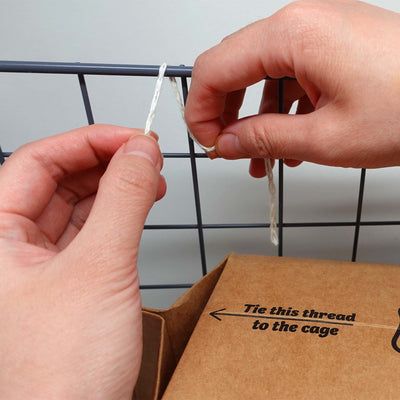
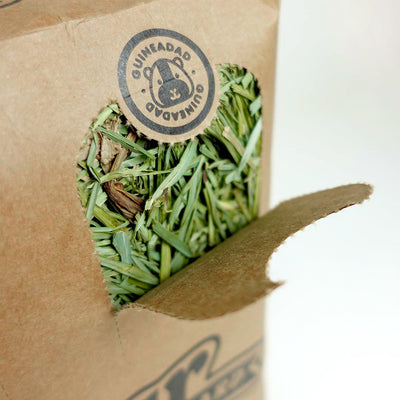
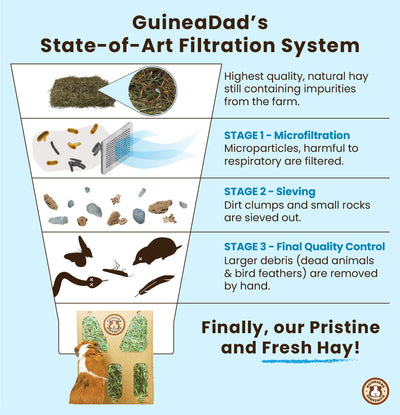
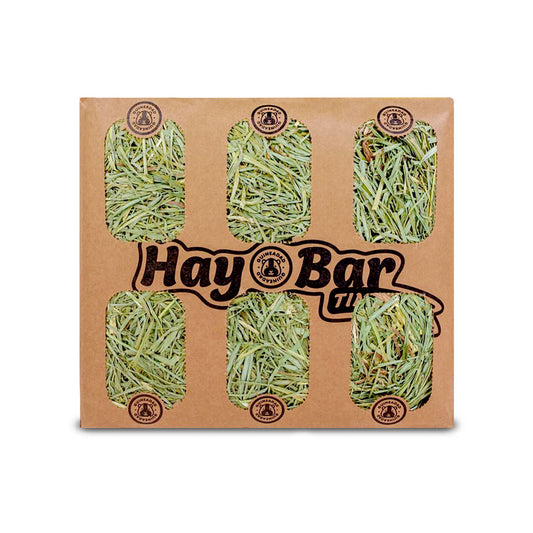
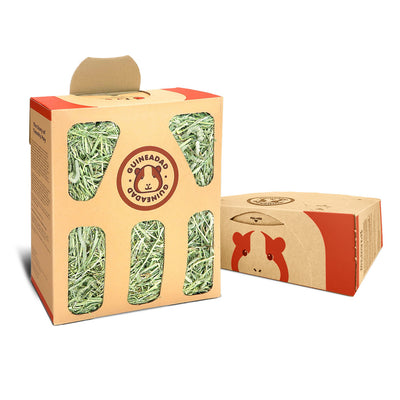
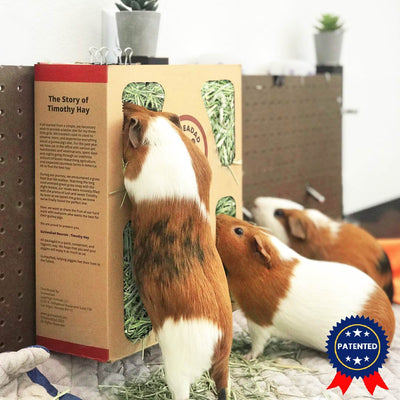
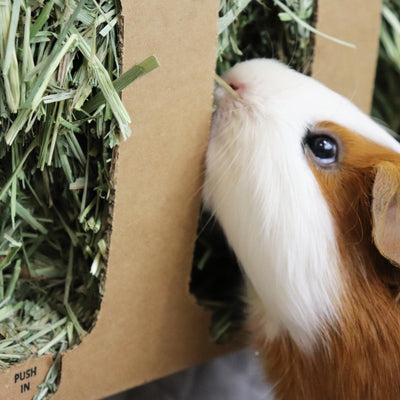
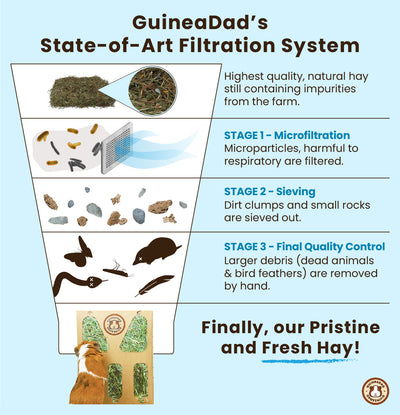
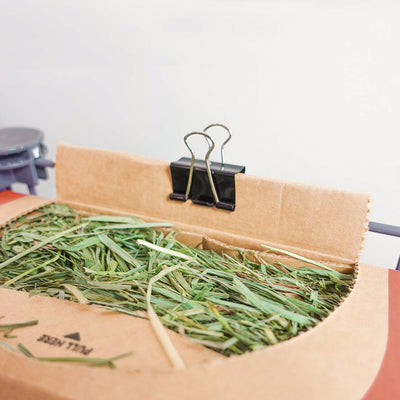
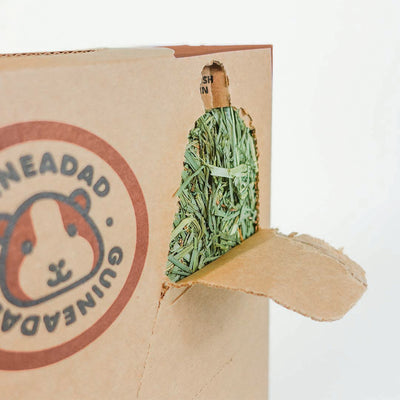
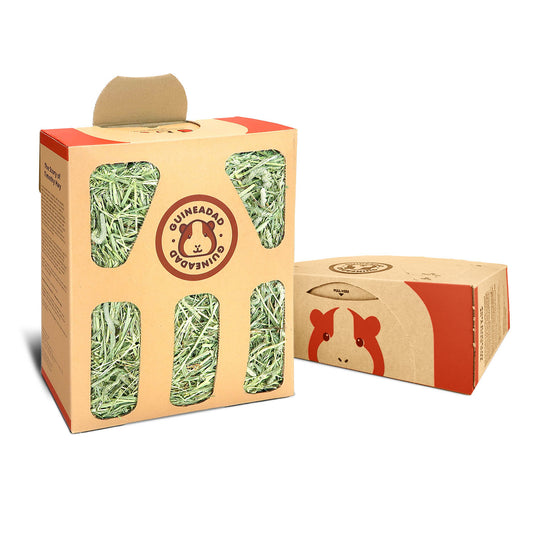

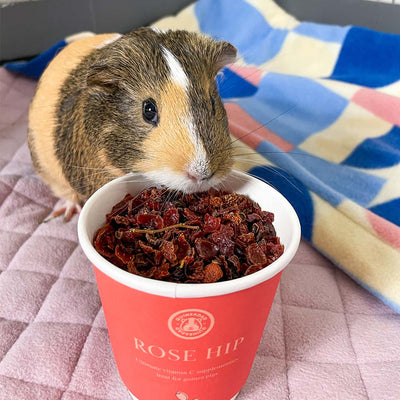
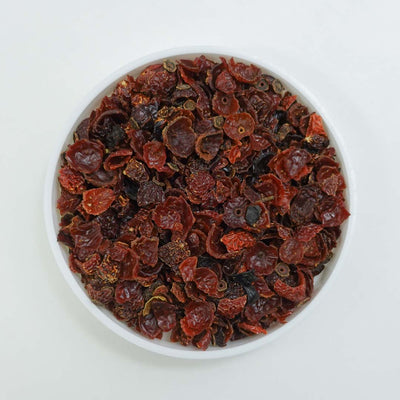
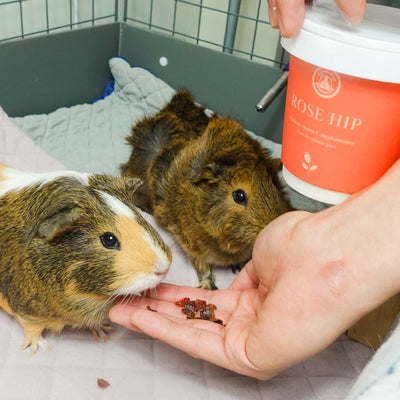
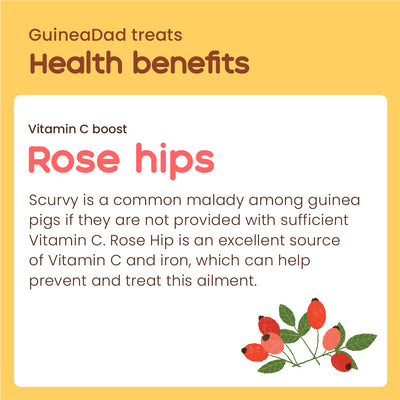
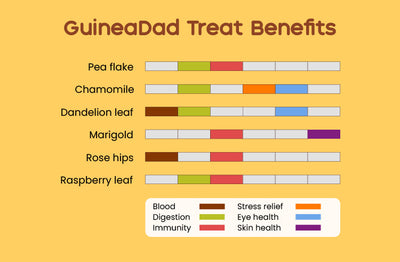

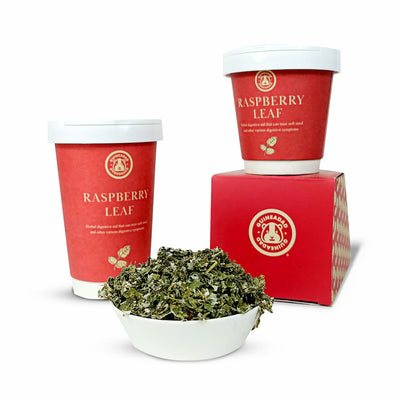
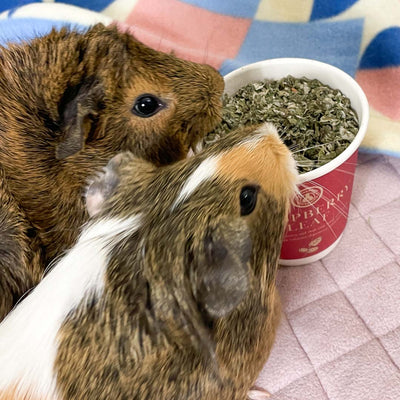
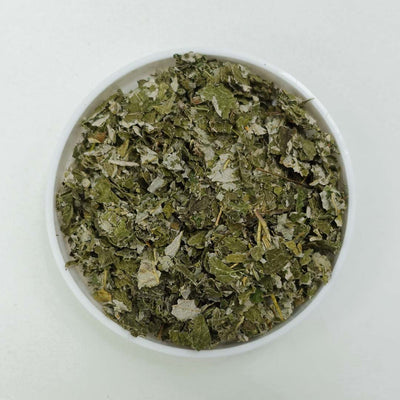
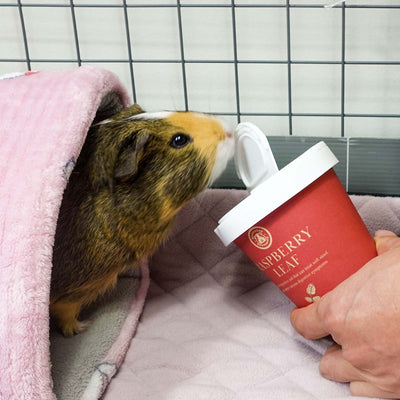
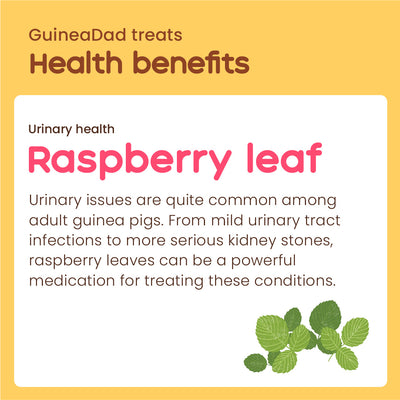
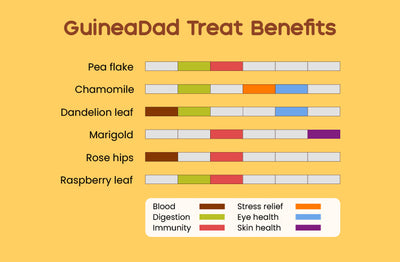
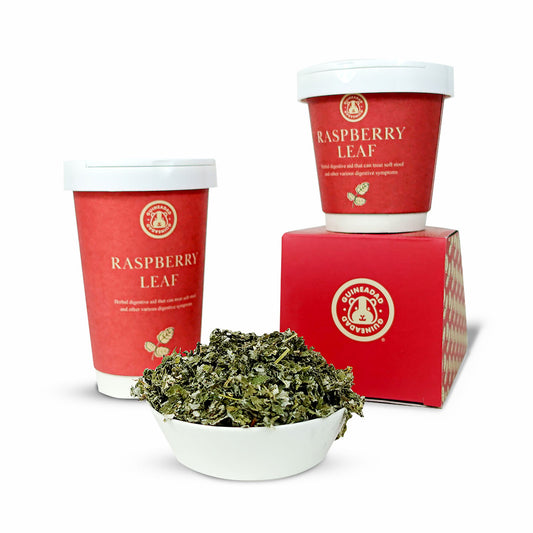
2 comments
We have up to 100 guinea pigs in our rescue at one time and I feed VIT C greens daily- my basic greens mix is kale, cilantro, spring mix and some form of lettuce ( not iceberg) I have been doing this for 11 yrs with no issues. My babies are big and strong and no problems with scurvy
We care for Guinea pigs at a local rescue center. I’m wondering how often to feed those vitamin c rich veggies. You mentioned not too frequently. Are the pet store vitamin c supplements for Guinea pigs okay too? Thanks for your help!